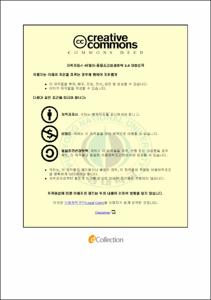芥川龍之介 『地獄変』의
- Alternative Title
- Akutagawas『Jigokuhen』of
- Abstract
- Akutagawas『Jigokuhen』of
-Centering around『ujisyuimogatari』and『Emile jong』-
Young Cheol Kim
Graduate School
Pukyong National University
Directed by Professor Yoon Il
Abstract
Akutagawa lived through a period of Meiji, Daisho and Showa and his work was mainly wrote during Daisho period, therefore it is the accepted view that the age of Akudagawas literature called as Grate Daisho period. As Daisho period was the time of Antagonism and Harmony between Japanese tradition and Western in terms of literature, the Akudagawa constantly intented the western. He was the typical author of his day based on western literature through art-for-art principle. Although he tried to complete the technical elegence and formal completion consciously through his ten year work activities, the Daisho literature perished with his death without splendid achievement. The Akutagawas artist novel 『jigokuhen』that published at 7 year of Daisho period, can be called as the Akutagawas masterpiece. Being aware of the condition of literary world in those days, the Akutagawa tried to test his art view and artist viewpoint in his own way in the 『jigokuhen』. come out though these 2 works. 『ujisyuimogatari』and『Emile jong』is the story that is centeredaround『ujisyuimogatari』and『Emilejong』of art-for-art principle. The indomitable artistic spirit of Yosihide and Hajeon can be seen, after there family to kill by artistic spirit. Having studied the『ujisyuimogatari』and『Emile jong』and
-ⅱ-
Akutagawa though the『jigokuhen』, the art itself was likely the only meaning for Akutagawa, not a choosing a art by despising a life. And the true meaning of art-for -art principle. that the Akutagawa pursued for, would be the constant effort and will to follow the the artist of life. Akutagawa denied to reflect his every day in his products and attach importance to conscious composition and expression method. Akutagawa s art-for-art principle to pursue art-for-art merely and Yoshihide who adopted a positive attitude in completion of art as impractical existence had some relation from the point of view that they are fit for realization of perfect art-for-art principle. Namely, Yosihide is Akutagawas ideal type that is expressed by conscious and intellectual mechanism. So, in such a point Akutagawas artistic attitude had something in commen with Yosihides. They have many points of likeness. A realty of life is hell to Yosihide. Akutagawas misfortunate life is hell too. They look for escape from such a hell as art and they devote themselves for there art. Their attitude like this is that the art is the highest and it is originated by art-for-art principle that can transcend everything as a strong belief on art. But after all, they come to select a death as on end of life. Yosihide believes that the completion of art can transcend every gnawing of life. So, after finishing his masterpiece that is the peak of ideals for him to pursue. The meaning of his death is significance loss of existence any longer.
- Issued Date
- 2010
- Awarded Date
- 2010. 2
- Type
- Dissertation
- Publisher
- 부경대학교
- Alternative Author(s)
- Kim, Young Cheol
- Affiliation
- 부경대학교 대학원
- Department
- 대학원 일어일문학과
- Advisor
- 윤일
- Table Of Contents
- 目 次
*Abstract ⅱ
Ⅰ. 序論
1. 硏究目的및 硏究方法 1
2. 先行硏究 3
Ⅱ. 本論
1.『宇治拾遺物語』의 藝術的 行爲 8
2.『에밀레鐘說話』의 藝術的 行爲 12
3.『에밀레鐘 說話』와『宇治拾遺物語』比較 15
4.『地獄変』의 17
5. 芥川龍之介의 45
Ⅲ. 結論 50
參考文獻 53
-ⅰ
- Degree
- Master
- Files in This Item:
-
-
Download
 芥川龍之介 『地獄変』의 <藝術至上主義>.pdf
기타 데이터 / 1 MB / Adobe PDF
芥川龍之介 『地獄変』의 <藝術至上主義>.pdf
기타 데이터 / 1 MB / Adobe PDF
-
Items in Repository are protected by copyright, with all rights reserved, unless otherwise indicated.